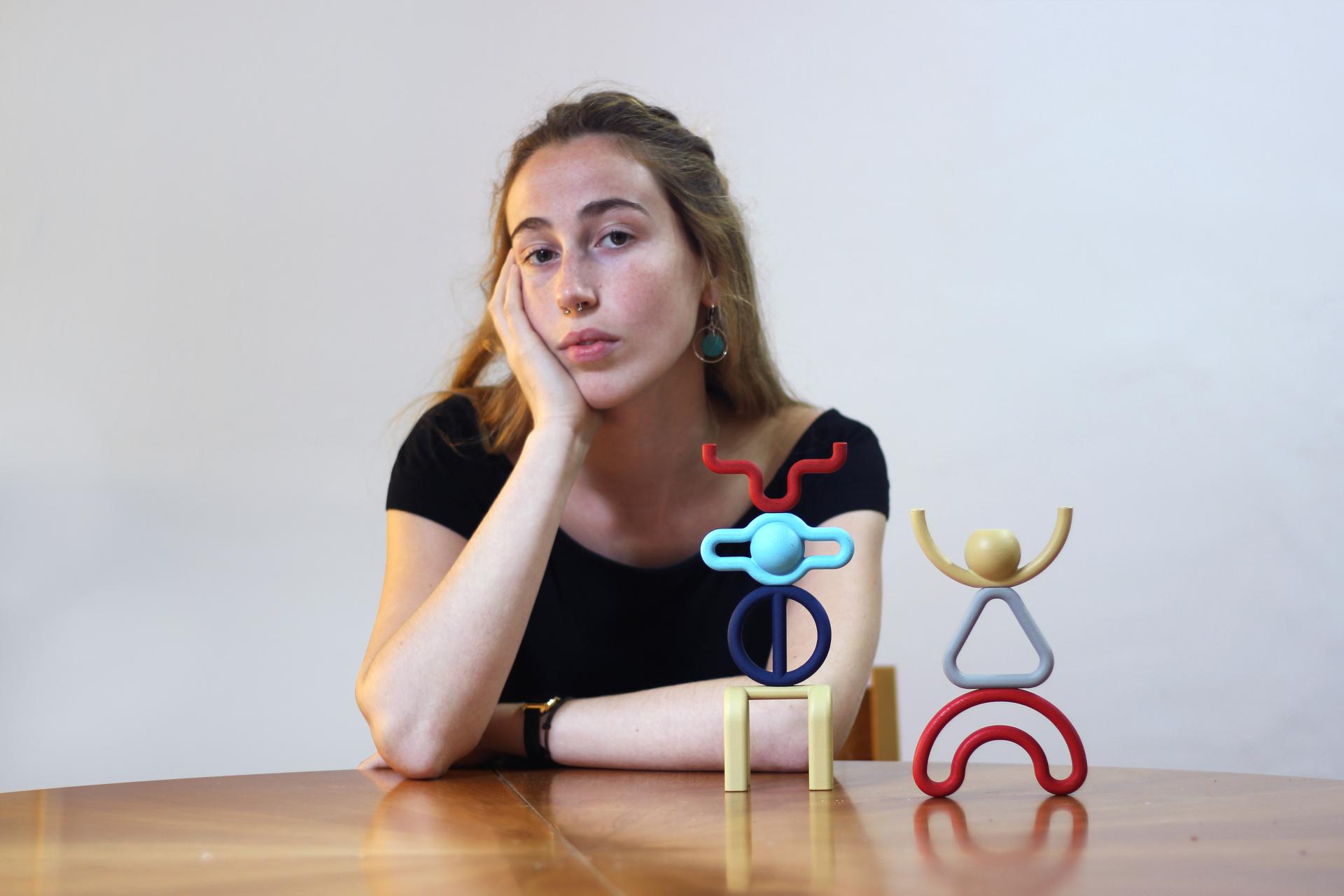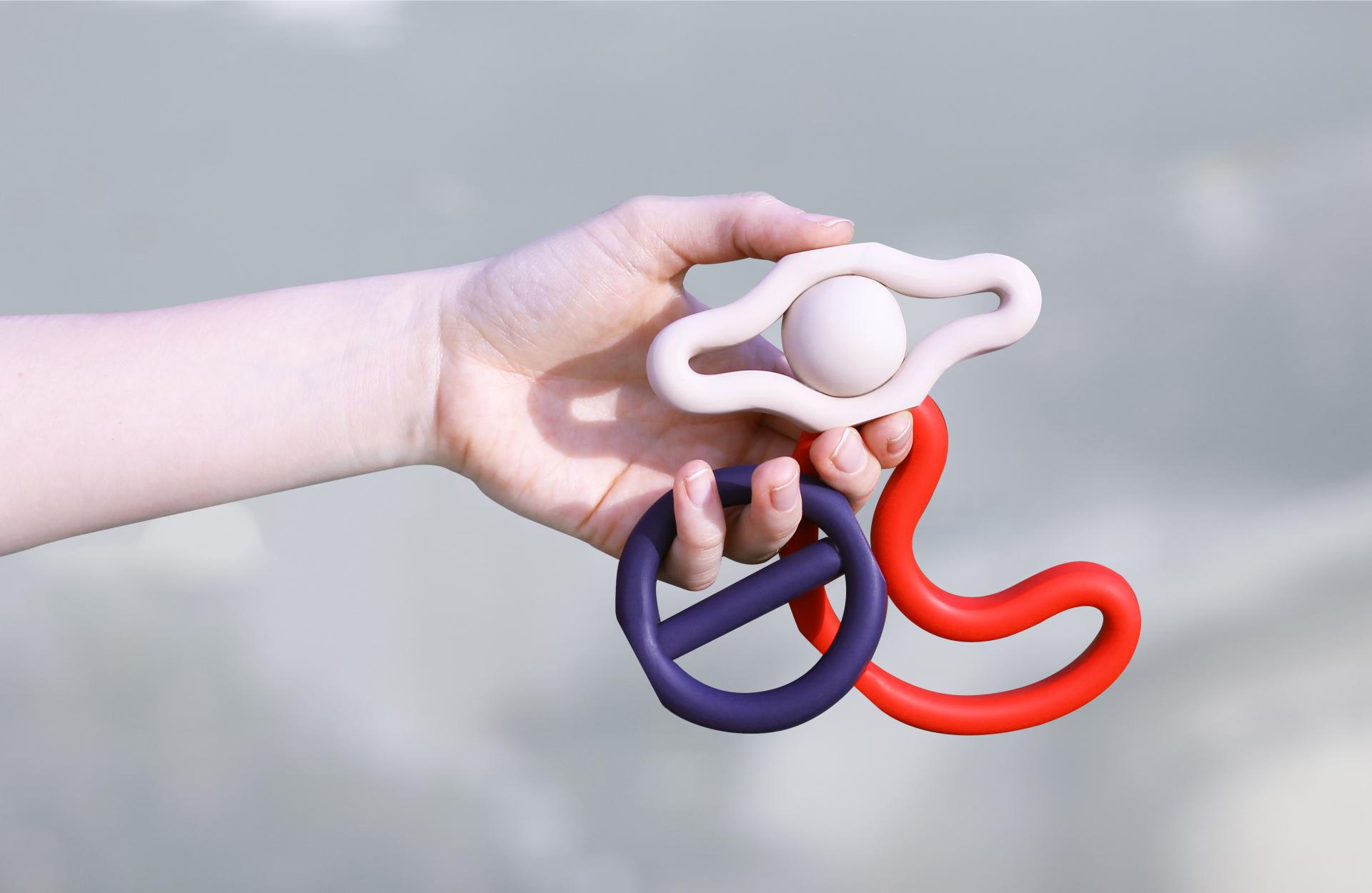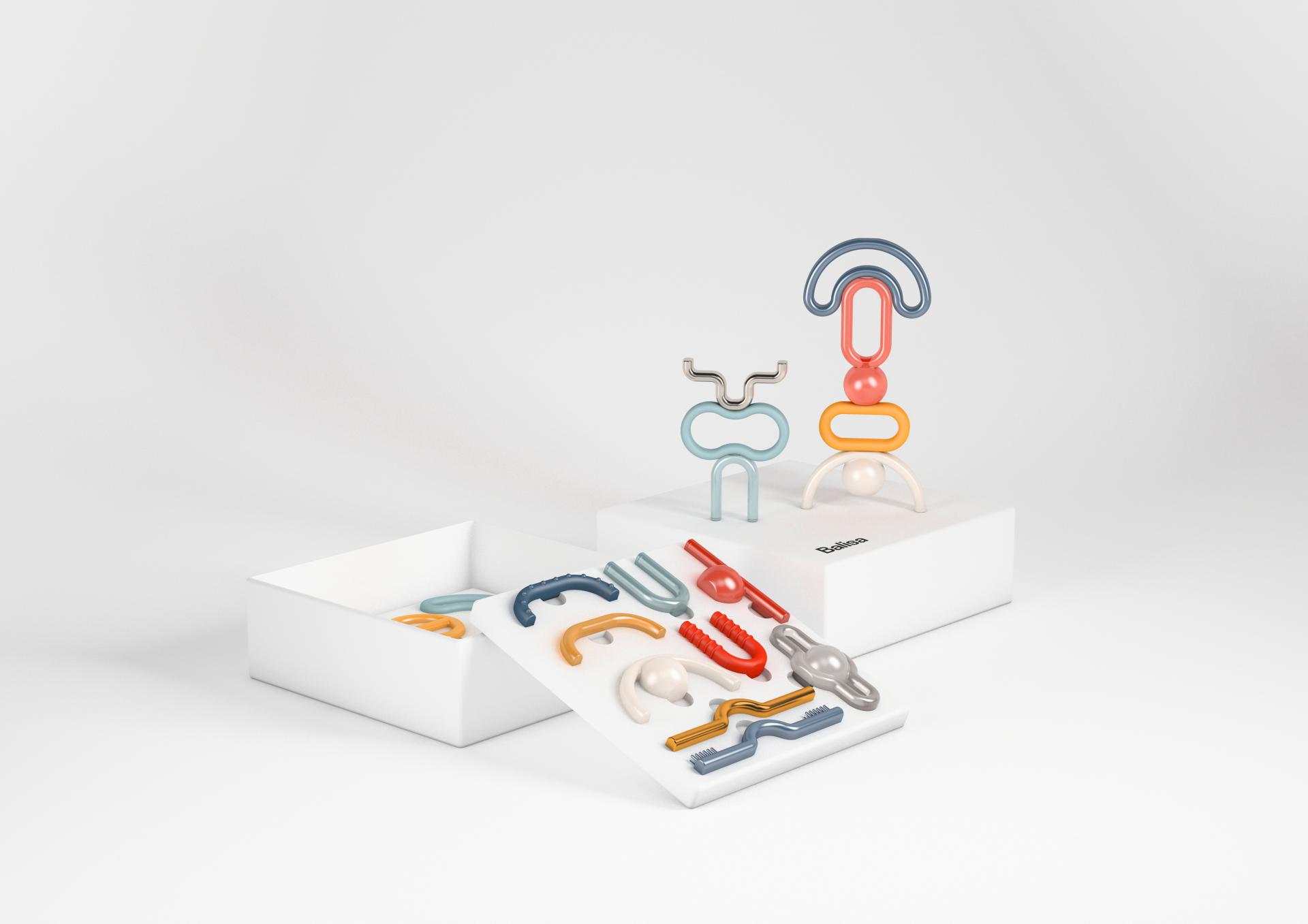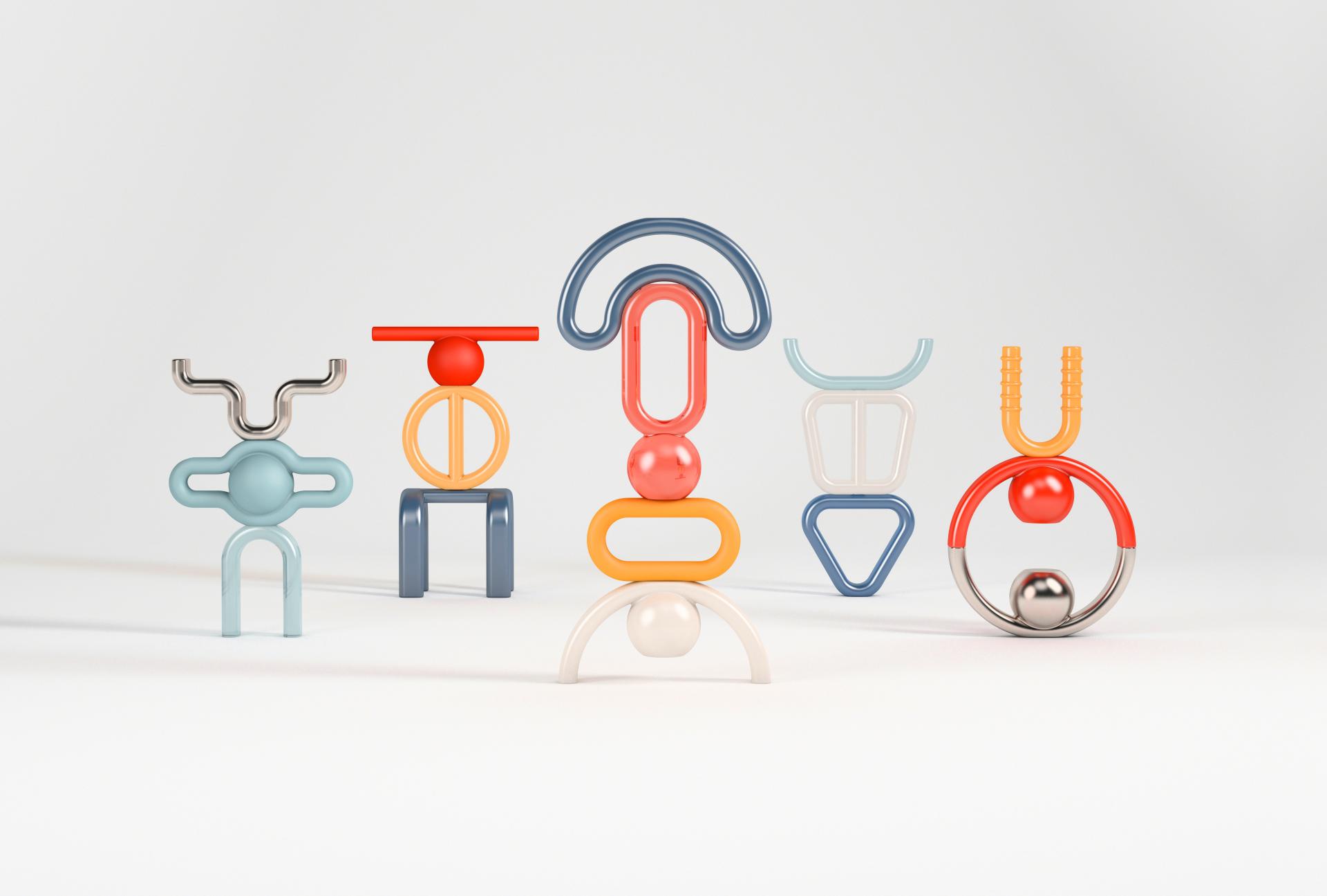Balisa
Basic information
Project Title
Full project title
Category
Project Description
"Balisa" accompanies and supports the healing process of adult survivors of child sexual abuse. A series of pieces are provided that facilitate communication between psychologist and survivor through the representation in volume of the emotions that are experienced during the healing process. Each emotion is linked to a piece, these are stacked together and form a totem that the person takes home with the aim of autonomously follow their emotional management and define a safety zone.
Geographical Scope
Project Region
Urban or rural issues
Physical or other transformations
EU Programme or fund
Which funds
Description of the project
Summary
"Balisa" is a therapeutic tool that accompanies and supports the healing process of adult survivors of child sexual abuse. A series of pieces are provided that facilitate communication between psychologist and survivor through the representation in volume of the emotions that are experienced during the healing process. Each emotion is linked to a piece, these are stacked together and form a totem that the person takes home with the aim of autonomously follow their emotional management and define a safety zone in their home.
Child sexual abuse is a social problem that affects a large percentage of the population, but instead, they are treated with taboo and secrecy. Analyzing the statistics we can see the huge percentage of people who suffer from this problematic: 1 in 5 children are victims of sexual abuse at least once before the age of 17. As we can observe, it deserves urgent attention and immediate search for improvements or solutions.
Unlike other problems treated in psychological therapy, there is currently no tool to help manage the trauma caused by child sexual abuse. That is why, during the research and experimentation process, we have collaborated with survivors and psychologists specialized in the subject, to design this tool.
The Balisa toolkit encompasses 21 different modules of a unique color, weight and texture. It improves communication between the survivor and the psychologist since the person can see in volume what is being spoken. It also facilitates the materialization and easy understanding of abstract concepts. And most importantly, Balisa help develop the ability to manage emotions, allowing the survivor to evolve and be able to solve the problems that arise throughout life.
This project proposes a reflection on the role of design in providing resources to improve this problematic, at the same time, contributes to the visibility and communication of this taboo to transform our environment and eradicate child sexual abuse.
Key objectives for sustainability
Balisa is designed in such a way that it can be used by any type of person regardless of gender, age, the place where it is used, etc. The same pieces that one day a specific person will use in a psychological session will be used another day by another patient. In this way, the materials and the product itself are kept in use for as long as possible, ensuring the durability of this tool.
The idea is that it does not have to be each person who buys this product, but rather that it is the psychologist who manages and uses it in each session, adapting it to the different needs of each person. In this way, the product does not leave the life cycle but remains in it over and over again.
Regarding production, the use of materials that allow the maximum quality of the product with the minimum impact on the environment is considered, to ensure that the product lasts as long as possible but at the same time is sustainable with the environment.
Key objectives for aesthetics and quality
Balisa's objectives revolve around the consequences and traumas that child sexual abuse leaves on survivors and society in general. This product focuses on the psychological sessions that the person receives once they decide to face this problem with professionals.
During the psychological therapy, the survivor will relate the emotions that are being worked on at each moment with the pieces that the person believes that best represent those feelings. In this way, each person will give the meaning to the pieces according to what their imagination inspires.
An example would be that during a session the survivor needs to work on the emotions they feel related to their self-esteem. Once the emotions have been identified, the person will be able to choose the piece or pieces that best represents the concept of 'self-esteem'.
You can choose from one piece to another, evaluating the color, weight, temperature, shape, etc. Since each piece is different to facilitate the relation between emotion and piece. This set of pieces has been designed with a timeless aesthetic in accordance with the principles of the psychology of form and color and with the constant supervision of expert psychologists on the problematic.
Balisa aims to improve communication between the survivor and the psychologist once the healing process begins, this is achieved because through this toolkit abstract concepts such as emotions can be materialized and understood more easily. The survivor begins to develop the ability to interpret abstract concepts while learning to manage their emotions in a more autonomous way. This tool provides a very complete sensory experience adapted to each survivor as it involves the sense of sight, touch and balance.
Key objectives for inclusion
This project is proposed in such a way that it can be used for all kinds of people who have suffered child sexual abuse, but it extends to any problem that can leave emotional consequences. In other words, a psychologist who has this tool can work with patients who have suffered any type of emotional problem. This makes it possible for it to be useful for any type of person, society or culture.
At the same time, this project not only focuses on victims of child sexual abuse but also involves the entire population, making this problem visible. To achieve this goal, a collaborative book has been created with the aim of reflecting on all types of abuse, acting critically to create a change in our society and transform our environment.
Balisa is an example of universal design, since it has been proposed in such a way that it adapts to the different needs of each person in a simple and intuitive way: It is independent of age, gender, type of trauma, time, etc. It is each person who brings meaning to each piece, and the product adapts to how the person feels and evolves. For this reason Balisa has a beginning of use but not an end, since it can be used throughout a person's life.
Another important goal of Balisa is that all psychologists and associations related to emotional management can have this tool, to facilitate accessibility to the population. In this way, anyone who decides to go to psychological therapy, whether through a private or public psychologist, can benefit from this product.
Physical or other transformations
Innovative character
This project aims to be critical and ethical with people and the environment, since the main objective is to be able to transform our society: raising awareness, making visible, learning.
It is for this reason that this project not only aims to meet the needs of the people who can use it, but also tries to be as ethical as possible with our environment. It is for this reason that it is proposed as a product without end of life, but rather it adapts to the needs of each person and evolves as it is used.
At the same time, it is very important to bring this product to public psychologists, and make the population aware that it is enormously important to be able to count on public psychology as a society. It is the only way to face the traumas that affect us and thus improve as a population. This project aims to be inclusive, and to achieve this it is very important that all people, regardless of their economic capacity, can benefit from the public health of the country where they reside.






